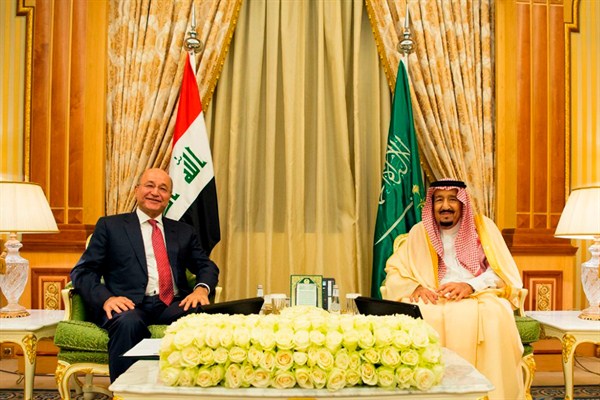Last month, Iraqi Prime Minister Adel Abdul Mahdi made his first trip to Saudi Arabia, where he met with Crown Prince Mohammed bin Salman. The visit was part of a broad effort by Saudi Arabia to counter the growing regional influence of its rival, Iran, by deepening political and economic ties with Iraq. For Iraq, too, a closer relationship with Saudi Arabia allows it to diversity its foreign policy. But the two neighbors’ efforts to mend fences will take time, and will need to overcome many tricky obstacles, says Elizabeth Dickinson, senior analyst for the Arabian Peninsula at the International Crisis Group. In an email interview, she discusses the political and economic factors pushing Saudi and Iraqi leaders to repair their ties, and the hurdles in their way.
World Politics Review: What factors have brought Iraq and Saudi Arabia closer together in recent years? How much of a role did the war against ISIS play?
Elizabeth Dickinson: For more than a decade following the U.S. invasion in 2003, Saudi Arabia and its Gulf allies more or less cut ties with Baghdad, citing concerns about growing Iranian influence. Riyadh saw isolation as the best way to contain Tehran’s newfound regional influence. But the policy became a self-fulfilling prophecy: With Arab partners gone, Iraq had little choice but to deepen its economic and political ties with Iran.

